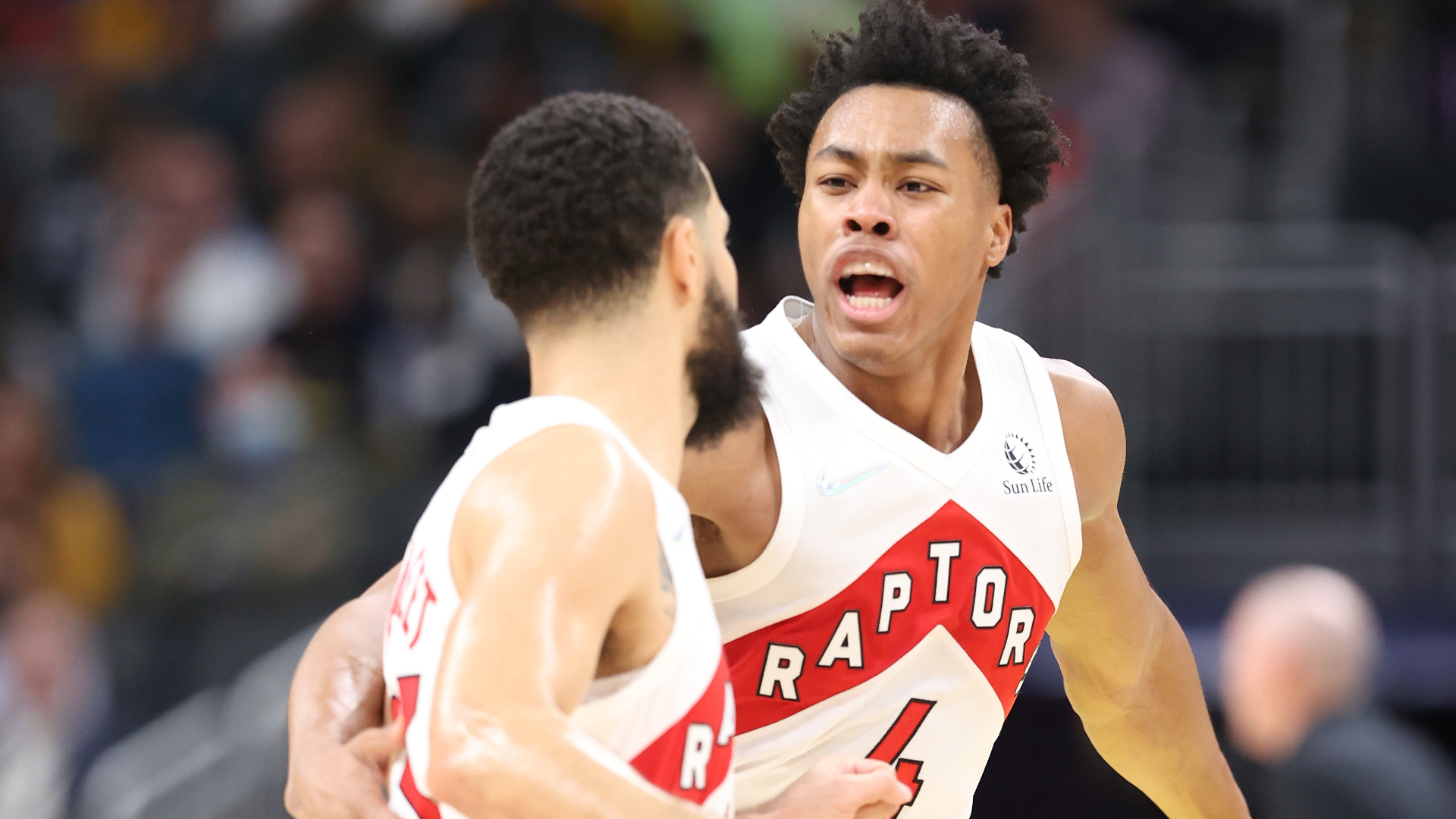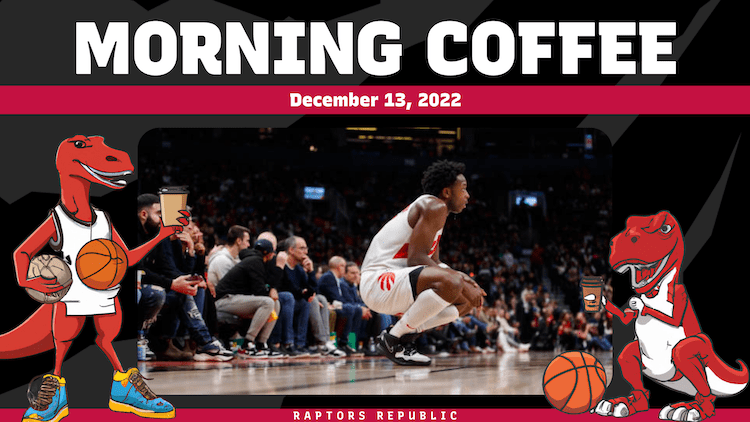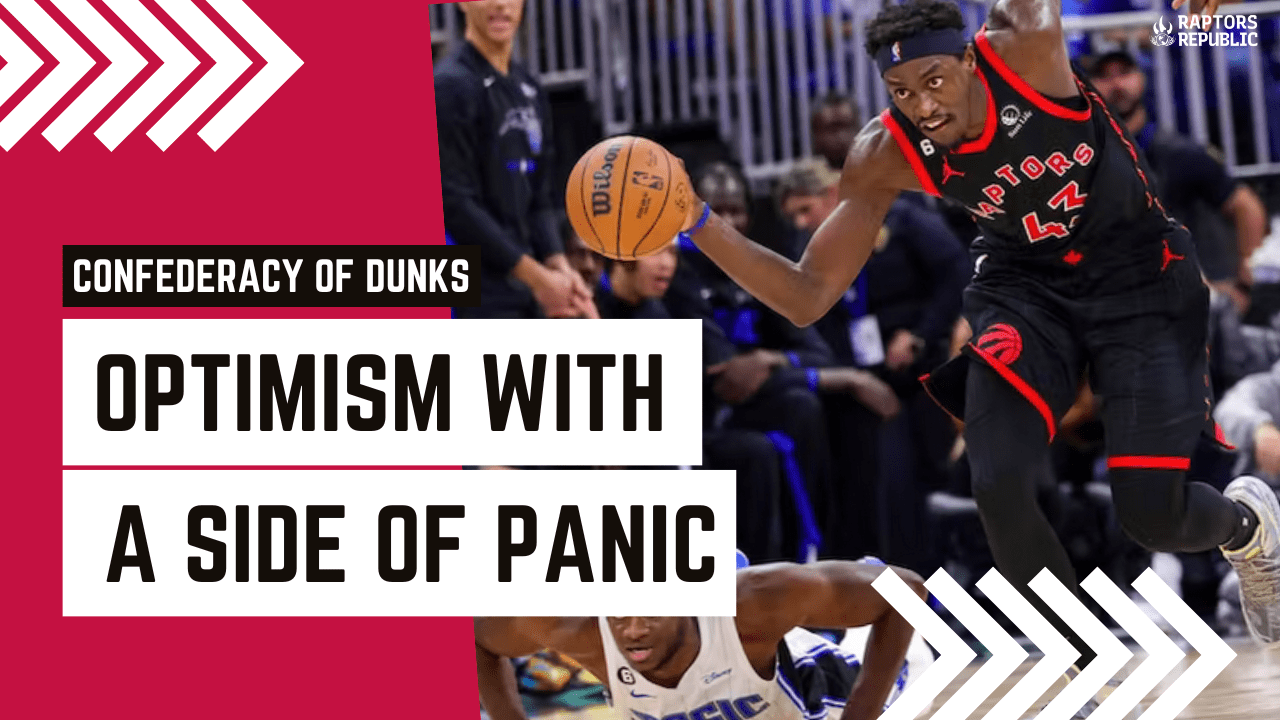Babies poop themselves awake frequently, some almost daily. They don’t like it, to be sure, and don’t usually go back to sleep. But it’s not a big deal; they forget almost immediately. Sometimes they will drift back to dreamland. For a healthy adult with no preexisting bowel issue, such an awakening would be the shock of a lifetime. The feeling of discomfort, the cold sweat, the realization. Then the surprise. The surprise most of all.
The Toronto Raptors have made a habit, in past seasons, of losing in humiliating ways to the Orlando Magic.
In the championship season, the Raptors ended a seven-game winning streak with a miserable, near-20-point loss to the Magic on a dreary Sunday afternoon. Then of course came the 25-0 game to start the playoffs — 25 to 0, of course, being the number of points scored by DJ Augustin compared to the number of points scored by Kyle Lowry.
But only this season, with real expectations following a return to the playoffs, have the Raptors pooped themselves on the court against the Magic. We’re about to find out if they pooped themselves awake or if they will, placidly and unmindful of the discomfort, simply go back to sleep.
Toronto’s problems have been multitudinous and as whack-a-mole as they were in Tampa Bay. Toronto was 12-13 after 25 games in Tampa Bay. The wheels really and truly popped off the wagon following that start (Toronto clawed its way above .500 at 16-15, but then it would go 11-20 to end the year). It’s not time to panic yet; the Raptors aren’t certain to go the way of Tampa Bay. History does not always repeat itself.
But Toronto’s losses to the Magic were bad.
I asked Nick Nurse before Toronto’s Dec. 7 home game against the Los Angeles Lakers about the unseasonably cold shooting from the team’s three most important marksmen, Fred VanVleet, O.G. Anunoby, Gary Trent jr., and what the deal is there. The phrasing was that if all three were shooting the same percentages as they hit the season prior, Toronto would have had 39 extra points. (It had outscored opponents by 26 points through its 12-12 record to that point.) And he said basically that the three would have games shooting above themselves at some point and bring their averages up to normal.
Then I asked if that’s encouraging — if the Raptors are “not as bad as their record.”
“Of course,” he said, not looking at me and seeming a touch irritated by the question. “I would never put the word ‘bad’ associated with this team. Never. It’s a good team.”
I agreed with him on that point, then, and understood his response and demeanor. I thought the Raptors were better than their record, and they were in part undone by poor shooting from provably good shooters. But to some extent I disagree with him now. Once again, to repeat: Toronto’s losses to the Magic were bad. The word applies to the team in this context.
Yes, the Raptors shot poorly against the Magic. And it was good shooters who, once again, did it. VanVleet, Anunoby, and Siakam shot 6-of-31 from deep in the two games, good for a grand total of 19.4 percent. And in fact the Magic had some unseasonably warm shooting from Markelle Fultz (career 27.3 percent 3-point shooter, shot 3-of-5), Mo Wagner (career 31.3 percent 3-point shooter, shot 3-of-8, and Cole Anthony (career 34.0 percent 3-point shooter, shot 4-of-8). But that was not the reason the Raptors lost.
Toronto’s defense floundered. In the first contest, it played too cool for school, thinking it could take a half off and have the talent and execution to turn it into a win. Perhaps it was because the Raptors handled the Magic less than a week earlier, on Dec. 3. And they almost managed it. They were down 20 points with six minutes remaining in the third quarter, and they tied the game with under a minute left but then watched the coin toss flip away. Good teams can almost always handle bad ones over an extended period of time (like a seven-game series), can usually do it over a medium period of time (48 minutes), but can’t rely on anything in a single minute. Toronto played a stupid game and won a stupid prize.
But then came another loss to the same team in the very next outing. The Raptors actually came ready to play in the second contest against the Magic. They played terrific defense in the first quarter, with the precision and effort that was missing in the prior game. They ran extraordinarily tight sets in the third quarter, using flurries of cuts and screens and drives to create wide open shots. But outside of those high points, Toronto slowly and valiantly watched the Magic pull away. It would have been forgivable, given the shooting differential and somewhat questionable fouls limiting Siakam, until the fourth quarter.
Toronto had stayed within punching distance all game. It would not need a 20-point comeback. But then a series of defensive breakdowns — most of which involved Scottie Barnes — led to a series of open jumpers to Franz Wagner, who scored nine points within one minute to completely end the game.
The Raptors gave up, showing something that looked like resignation. In the first loss, they believed until the end they could make up any deficit. In the second loss, they stopped believing very quickly. They accepted their loss to one of the worst teams in the league.
Individual games don’t always mean the same thing within teams as they do to observers from the outside. What can look like a disaster from the outside can only be another loss to players and coaching staff. But that will be on the team to prove, now.
Babies need to make a choice after they poop themselves awake: Make a fuss about it, which is an infant’s way of solving problems, or resignedly accept your fate. The Toronto Raptors are decidedly not babies. They are basketball geniuses and some of the best in the world at their craft. But, by virtue of bad luck and bad play, they at the moment are facing a similar problem to babies. They’ve humiliated themselves, in a way that is unusual for a team with so much talent, pride, and pedigree. Now they need to decide to solve the problem or accept it. When you resign yourself to a woeful fate, that becomes a habit. We’re about to find out what the Raptors’ habits truly are.



